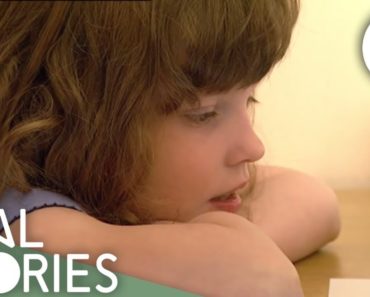Deciding when to have kids was always a big question mark for me and my husband. We knew we wanted them but didn’t feel pressure to get married and pregnant right away. Instead, we focussed on our careers, bought a house, got a dog, traveled and helped with sick family members.
There was a lot about getting pregnant and having kids that scared me. After watching so many of our friends struggle with infertility, I was convinced that our path would be similar. Maybe that’s really why we had been putting it off.
When we finally decided to start trying, I mentally prepared myself for a long road ahead. To our surprise, I got pregnant right away. We were traveling in Australia when my period was late by a day, then two days, then three. We went in search of a pregnancy test.
When we returned home, my doctor sent me for blood work and booked our first routine ultrasound scan. My biggest concern at that point was making sure that the clinic was able to print out photos for us. It never occurred to me that bedside manner might be something to worry about.
We went in for our appointment, naively following the directions we were given without asking many questions. I went in alone and my husband waited to be called in at the end. The technician located the baby but told me that based on the embryo’s size, I had come a little too early and that I likely wasn’t as far along as I thought. She recommended we come back two weeks later to repeat the scan.
We went back for the second ultrasound on December 27th, again following directions and fully trusting in the clinic and the process.
Lying on the table, I knew pretty quickly something was wrong. The technician was quiet and all my questions and attempts at information went unanswered until words came that would stay with me forever.
Tech: “Why do you think you’re pregnant?”
Me: “Umm.. what do you mean?”
Tech: “There’s nothing here. I see nothing.”
Me: Starting to really panic but unable to speak
Tech: “Did you just pee on a stick or something?”
Me: “No, this is my second ultrasound and I’ve had multiple blood tests.”
Tech: “It’s an empty sack. I can keep looking but there’s nothing here.”
Tech: “Your doctor will call you in two business days. You can go now, there’s nothing more for me to do.”
While that appointment is seared in my brain, the rest of the day is a fog. I walked out of the clinic into the hallway and collapsed. My husband who had been sitting in the waiting room being given no information ran after me and caught me just in time.
I called my doctor from the car on the way home and explained what had happened to the receptionist. They told us to come in right away and they would get the details from the clinic.
My doctor was horrified at what we’d been through and told us gently that she had seen the scans herself and confirmed that it wasn’t a viable pregnancy. We repeated the blood work just to be sure and she explained our options.
What happens after a silent miscarriage?
A silent or missed miscarriage means the mom doesn’t experience typical miscarriage symptoms such as cramping and bleeding. There are three possible treatment options (that you can read more about here), provided you don’t have any medical concerns, or signs of complications, such as infection. For me, it was a combination.
That day in the ultrasound clinic started a three-month-long painful and traumatizing process of getting my body to pass that non-viable pregnancy. I took two rounds of Misoprostol, a drug that induces labor with contractions *almost* as bad as actual labor, had a D&C surgery and many, many blood tests while continuing to work and pretending that everything was fine.
At least one in four pregnancies end in loss and yet it’s still considered a taboo topic. And no matter the medical reason, we often blame ourselves, filling our minds with what we did wrong and why we deserved to lose the pregnancy. It’s irrational, unfair and such an isolating experience.
To that ultrasound technician (who I know does not represent all ultrasound techs by any means) I was probably just another patient with a non-viable pregnancy, but to me, she was—and will continue to be—apart of my story.
We were able to get pregnant again once my body finally recovered. We have a healthy, beautiful, smart 4-year old now who is our whole world, but it’s rare that a day goes by I don’t think about that first pregnancy. Time does help but I know the grief will never fully go away.
How to support someone who’s been through a pregnancy loss
Have a friend or family member who is going through a pregnancy loss? Here’s are a few do’s and don’ts when it comes to supporting them.
1. Don’t make statements like, “at least you’re still young” or “at least you know you can get pregnant” – this diminishes the loss they have just experienced and assumes they should be grateful and move on.
2. Don’t assume that it’s easier because the loss was early on – a loss is a loss regardless of when it happens.
1. Acknowledge the loss and ask how the person is doing – this simple gesture when you don’t know what to say can go a long way.
2. If they had already chosen a name for the baby, use it.
3. Send flowers, food or a gift. Chances are they are not thinking about cooking or pampering themselves.
4. Make yourself available to listen, even if they aren’t ready to talk right away.
Get parenting news, expert advice, info on secret sales, discounts and the best-ever products. Sign up for the Today’s Parent newsletter.

































